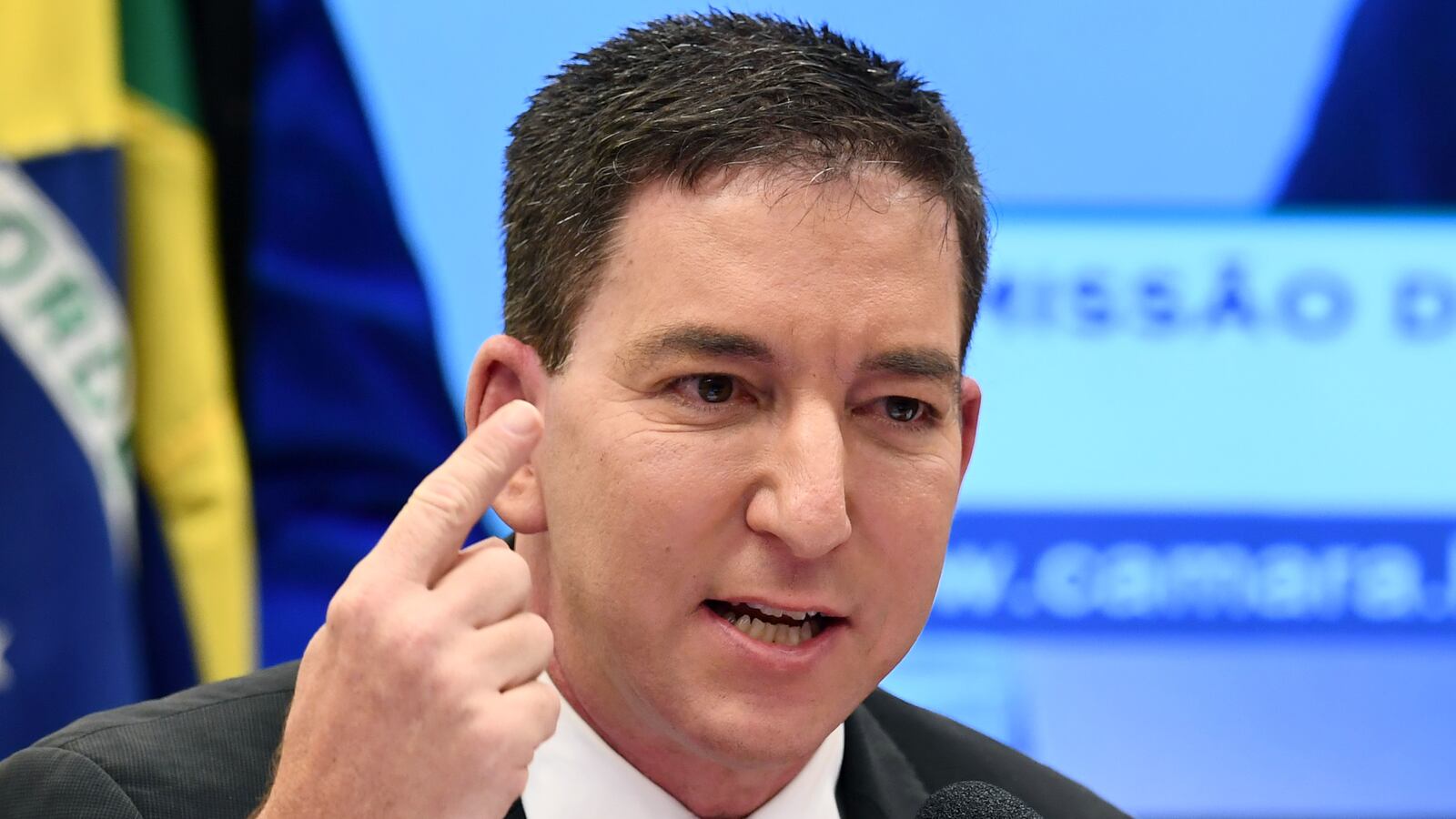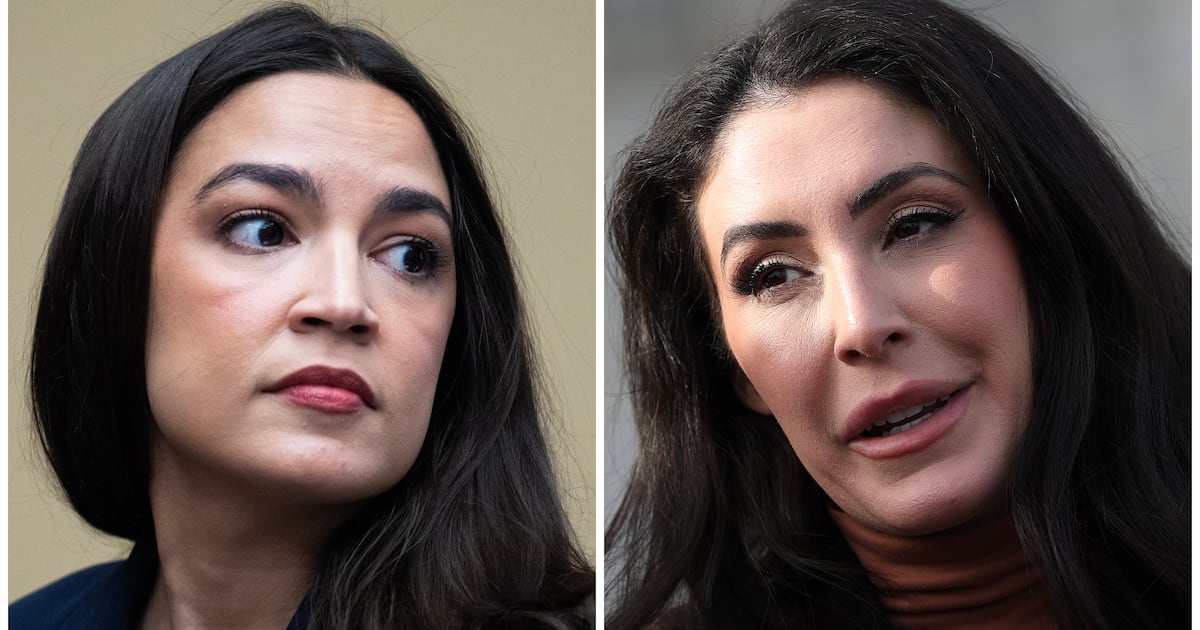Glenn Greenwald on Thursday announced that he had resigned from The Intercept—the digital outlet he founded in 2013 with fellow journalists Laura Poitras and Jeremy Scahill, and with funding from First Look Media—claiming “repression, censorship and ideological homogeneity” at the publication.
In response, the outlet disputed his claims of censorship and suggested his exit was essentially “a grown man throwing a tantrum.”
In a post published to Substack, the long-time reporter claimed that “The final, precipitating cause” of his exit was that “The Intercept’s editors, in violation of my contractual right of editorial freedom, censored an article I wrote this week, refusing to publish it unless I remove all sections critical of Democratic presidential candidate Joe Biden, the candidate vehemently supported by all New-York-based Intercept editors involved in this effort at suppression.”
He continued: “The censored article, based on recently revealed emails and witness testimony, raised critical questions about Biden’s conduct. Not content to simply prevent publication of this article at the media outlet I co-founded, these Intercept editors also demanded that I refrain from exercising a separate contractual right to publish this article with any other publication.”
The long-time writer, whose reporting on the NSA’s surveillance operations helped The Guardian win a Pulitzer Prize in 2014, eventually published the allegedly censored article draft on his Substack page, along with his correspondence with the editors.
The Intercept’s editor in chief Betsy Reed told The Washington Post that “it is absolutely not true that Glenn Greenwald was asked to remove all sections critical of Joe Biden from his article. He was asked to support his claims and innuendo about corrupt actions by Joe Biden with evidence.”
And she further responded, in a scathing public statement, that “Greenwald’s decision to resign from The Intercept stems from a fundamental disagreement over the role of editors in the production of journalism and the nature of censorship. Glenn demands the absolute right to determine what he will publish. He believes that anyone who disagrees with him is corrupt, and anyone who presumes to edit his words is a censor. Thus the preposterous charge that The Intercept’s editors and reporters, with the lone noble exception of Glenn Greenwald, have betrayed our mission to engage in fearless investigative journalism because we have been seduced by the lure of a Joe Biden presidency. A brief glance at the stories The Intercept has published on Joe Biden will suffice to refute those claims.”
She continued: “The narrative he presents about his departure is teeming with distortions and inaccuracies—all of them designed to make him appear a victim, rather than a grown person throwing a tantrum. It would take too long to point them all out here, but we intend to correct the record in time. For now, it is important to make clear that our goal in editing his work was to ensure that it would be accurate and fair. While he accuses us of political bias, it was he who was attempting to recycle a political campaign’s—the Trump campaign’s—dubious claims and launder them as journalism.”
Klein concluded: “We have the greatest respect for the journalist Glenn Greenwald used to be, and we remain proud of much of the work we did with him over the past six years. It is Glenn who has strayed from his original journalism roots, not the Intercept.”
Greenwald’s colleague, D.C. bureau chief Ryan Grim, wrote on Twitter that he and Greenwald had “started out writing this Hunter article together, but he wanted to get deep into Burisma and media criticism and I wanted to focus on the China element, so we decided to write separate pieces. His piece was still in the edit process when all this blew up.”
Other now-former colleagues chimed in as well. “Here are some examples of actual censorship,” tweeted Intercept investigative reporter Mara Hvistendahl, seemingly in response to Greenwald, including a link to the U.S.-based China Digital Times, which reports on official Chinese government directives issued to media outlets demanding censorship or favorable coverage.
“I’ll always be grateful to Glenn for bringing me on to launch The Intercept. It’s still a place where I can write freely on subjects I hold dear,” tweeted criminal-justice reporter Liliana Segura. “But the one time I wrote a piece fiercely disagreeing w/ the work of a colleague, he asked me to pull my punches. The piece never ran.”
Prior to the Trump presidency, Greenwald’s reporting and commentary were influential on the left—especially among civil-liberties and anti-war groups—but since 2016, his frequent Fox News appearances and increasingly Fox-friendly columns have been a source of tension at The Intercept.
In recent years, Greenwald’s view of Russian interference in the U.S. election mirrored that of pro-Trump Republicans, leading to an increased presence on Fox News—especially on Tucker Carlson’s primetime program—as a non-conservative skeptic of the scandals that led to President Donald Trump’s impeachment and as a critic of liberal “resistance” politics.
“The Intercept published some of the most credulous and false affirmations of maximalist Russiagate madness, and, horrifyingly, took the lead in falsely branding the Hunter Biden archive as ‘Russian disinformation’ by mindlessly and uncritically citing—of all things—a letter by former CIA officials that contained this baseless insinuation,” he wrote in his resignation announcement.
Greenwald’s appeared to hint at his criticism of his own outlet over coverage of the Hunter Biden emails during an Oct. 21 appearance on Carlson’s show, in which he insisted that editors at many publications were outright ordering their reporters to lay off the story.
“There are newsrooms all throughout New York and Washington, D.C., where top editors are explicitly saying they do not want this story investigated and they are being clear that the reason they don't want to investigate it is because they think even if there is corruption that's exposed here,” Greenwald claimed. “In their view, Trump is worse and therefore it would be malfeasance on the part of the media to report corruption on the part of Biden when Trump is so much more corrupt.”
“If what they are saying is, they see their role as journalists not as informing the public to let the public decide which candidate is better and which is worse, they see journalism, the function of it is to defeat Donald Trump and elect Joe Biden,” he added.






